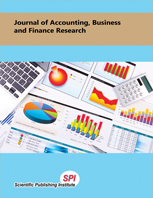A Survey of Studies on Money Demand and Inflation Amidst Banking Crisis
DOI:
https://doi.org/10.20448/2002.22.34.54Keywords:
Money demand, Inflation, Banking Crisis.Abstract
The paper is borne out of the necessity to create a repository of information on monetary effects of banking crisis with a focus on money demand and inflation. To this end, the paper selectively reviews some empirical studies on money demand and inflation in the face of banking crisis. Overwhelming evidence reveals that money demand does not only increase during banking crisis but is also largely stable. The studies also suggest that long-run cointegrating relationship exists between money demand and its determining variables during banking crisis. However, evidence indicates that banking crisis makes inflation to decline or increase. These pattern of results were evident in developed and developing countries and from different methodologies applied. One policy implication from the survey is that during banking crisis monetary policy would be ineffective. The policy recommendation that can make monetary policy effective is to expand money supply and reduce interest rate for the productive sectors, particularly agricultural and manufacturing sectors.


